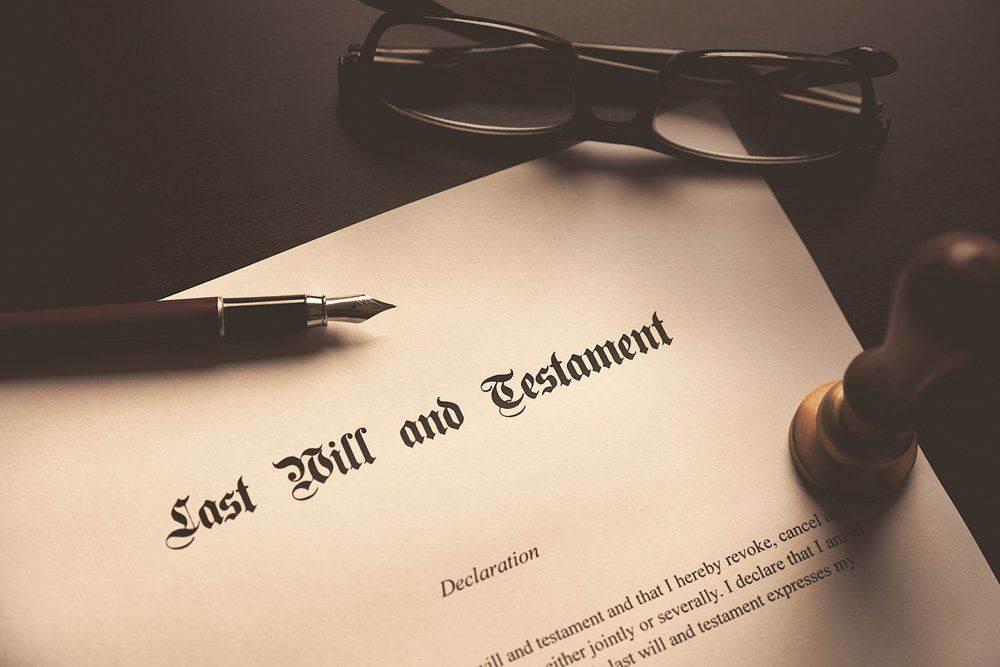Irresponsible estate planning could increase strife in your family. If you are concerned about potential disputes, use these tips to minimize the risks.
Blog Post
A Guide to Child Inheritance in California
- By Admin
- •
- 23 Aug, 2019
- •

When an adult inherits money or property, the assets usually go directly to them unless some sort of special circumstances exist. When a child is an heir to money or property, however, the situation is different. So what happens if your child is the beneficiary of significant assets from a deceased relative? Here is a look at how California law deals with this issue.
When the Inheritance Is Small
California law has special provisions for small inheritances, which the relevant statutes define as money or property worth less than $5,000. When a child receives this type of smaller inheritance, the parents are allowed to take charge of the assets on the child's behalf.
If you and your spouse are divorced, the parent who has legal custody will usually be given control of the assets.
If you and your spouse are divorced, the parent who has legal custody will usually be given control of the assets.
When a Large Inheritance Is Involved
If the money or property of the inheritance is more than $5,000, the issue can become more complicated. Here are a few circumstances you can encounter.
Trust
When the value of the inheritance is $5,000 or more, then who controls the assets depends on several factors. One of the critical factors in whether or not the benefactor set up a trust for your child. If the benefactor did so, then a trustee will have been named in the will or trust document. The probate court will oversee the trustee's handling of your child's assets.
The trustee has the legal responsibility to ensure that your child's inheritance is managed responsibly until the child reaches the age of majority. The age at which the asset will be given over to your child can vary depending on the language in the will or trust document. For example, in some cases, the trustee might keep control until the child is 25.
Guardianship
When the benefactor did not create a trust, then no trustee is in place to take charge of the inheritance. In this case, the court will often appoint a guardian for the child's assets. This type of guardianship is called a guardianship of the estate, to differentiate from guardianships in which an adult has legal custody of a child.
If the probate court needs to set up a guardianship of the estate for your child, you have the right to petition the court to become the guardian yourself. Having parents serve this function for their children is quite common. If the guardianship of the estate in contested by divorced parents, the parent with legal custody is often given preference.
A guardian of the estate is required to manage the estate carefully. If, as a guardian of your child's assets, you wish to invest the money, you will need to avoid making any speculative investments that put the assets at risk. You will also need to file papers with the probate court on a regular basis to document that you are handling the estate responsibly.
Under California law, any guardianship of the estate ends when the child turns 18.
UMTA
In some instances, a benefactor could leave your child money or property under the Uniform Transfers to Minors Act (UMTA). UTMA is a law in each state that is intended to ensure that benefactors have a way of leaving assets to a child without having to go through the complex process of setting up a trust or a having the court grant a guardianship.
Under UTMA, someone can leave your child an estate that is managed by a "custodian." The custodian will manage the assets until the child is of legal age or until the age specified in the will. In California, the lower age limit for a custodianship to terminate is 18 and the upper limit is 25.
When your child receives an inheritance, dealing with the legal issues involved inevitably requires the assistance of a qualified probate lawyer. To learn more, contact us at the Law Office of Carla D. Allen.
Trust
When the value of the inheritance is $5,000 or more, then who controls the assets depends on several factors. One of the critical factors in whether or not the benefactor set up a trust for your child. If the benefactor did so, then a trustee will have been named in the will or trust document. The probate court will oversee the trustee's handling of your child's assets.
The trustee has the legal responsibility to ensure that your child's inheritance is managed responsibly until the child reaches the age of majority. The age at which the asset will be given over to your child can vary depending on the language in the will or trust document. For example, in some cases, the trustee might keep control until the child is 25.
Guardianship
When the benefactor did not create a trust, then no trustee is in place to take charge of the inheritance. In this case, the court will often appoint a guardian for the child's assets. This type of guardianship is called a guardianship of the estate, to differentiate from guardianships in which an adult has legal custody of a child.
If the probate court needs to set up a guardianship of the estate for your child, you have the right to petition the court to become the guardian yourself. Having parents serve this function for their children is quite common. If the guardianship of the estate in contested by divorced parents, the parent with legal custody is often given preference.
A guardian of the estate is required to manage the estate carefully. If, as a guardian of your child's assets, you wish to invest the money, you will need to avoid making any speculative investments that put the assets at risk. You will also need to file papers with the probate court on a regular basis to document that you are handling the estate responsibly.
Under California law, any guardianship of the estate ends when the child turns 18.
UMTA
In some instances, a benefactor could leave your child money or property under the Uniform Transfers to Minors Act (UMTA). UTMA is a law in each state that is intended to ensure that benefactors have a way of leaving assets to a child without having to go through the complex process of setting up a trust or a having the court grant a guardianship.
Under UTMA, someone can leave your child an estate that is managed by a "custodian." The custodian will manage the assets until the child is of legal age or until the age specified in the will. In California, the lower age limit for a custodianship to terminate is 18 and the upper limit is 25.
When your child receives an inheritance, dealing with the legal issues involved inevitably requires the assistance of a qualified probate lawyer. To learn more, contact us at the Law Office of Carla D. Allen.
Share
Tweet
Share
Mail
The Law Office of Carla D. Allen
Los Angeles, California 90043
Phone:
323-293-2321
Email:
cdallenesq@gmail.com
Business Hours:
Monday – Thursday: 9 a.m. – 6 p.m.
Friday: 9 a.m. - 12 p.m.
Appointments Available
Free Consultation
Content, including images, displayed on this website is protected by copyright laws. Downloading, republication, retransmission or reproduction of content on this website is strictly prohibited. Terms of Use
| Privacy Policy








